
Hanka | Czechia | linguistics student My Goodreads About this blog Likes Following
33 posts
Kollektaneenbuch - Hanka's Online Notebook - Tumblr Blog
Leonard Bernstein’s Mass Forum Karlín, 2016 Vojtěch Dyk as the Celebrant
We’ve got quarrels and qualms and such questions, give us answers, not psalms and suggestions, give us peace that we don’t keep on breaking, give us something or we’ll just start taking! Dona nobis, dona nobis.

Lubomír Typlt: Studna | Well Nadějné vyhlídky | Great Expectations: exhibition at DOX, Prague (10. 11. 2021 – 24. 4. 2022)
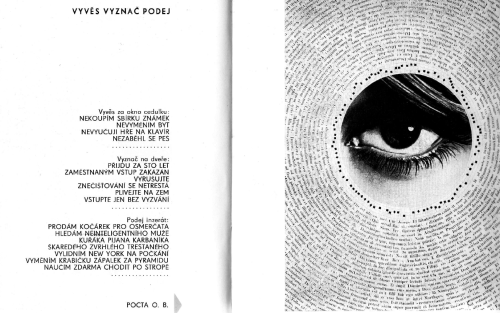
Jiří Kolář: ‘Vyvěs vyznač prodej’ in Návod k upotřebení (1969)
Hang a sign on your window: NOT WANTED: A STAMP COLLECTION NOT FOR SWAP: A FLAT PIANO LESSONS: NOT OFFERED DOG NOT FOUND
Write on your door: BE BACK IN A HUNDRED YEARS NON-STAFF ONLY DISTURB LITTERING NOT PROHIBITED PLEASE SPIT ON THE FLOOR ENTER WITHOUT PERMISSION
Place an advert: FOR SALE: A BABY CARRIAGE FOR OCTUPLETS LOOKING FOR AN UNINTELLIGENT MAN SMOKER, DRUNK, GAMBLER UGLY, PERVERTED, CONVICT WILL DEPOPULATE NEW YORK ON THE SPOT FOR SWAP: A MATCH BOX FOR A PYRAMID WILL TEACH TO WALK ON THE CEILING FOR FREE
"Academic Journals Doing Crime"
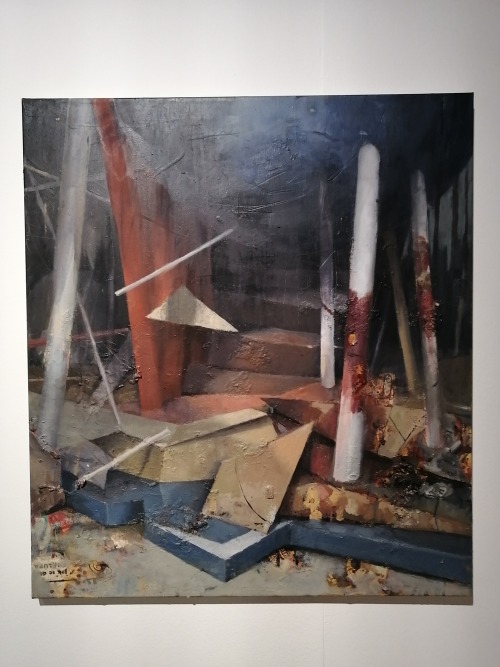
Daniel Pitín: Soumrak v lese | Twilight in the Forest Inkorporace: exhibition in Vyšehrad Gallery, Prague (2. 9. - 3. 10. 2021)
Interesting etymologies: part 2
Some words in different languages beginning with al- which are borrowings from Arabic (e.g. alcohol, algebra, alchemy, algorithm) are actually the result of reanalysis.
In this case, al is originally an article in Arabic, preceding the word itself (so e.g. al + kuḥl → alcohol, al + jabr → algebra), but it was reanalysed as one word in the process of borrowing.
The word algorithm comes from al Ḵwārizmī, a name of a Persian mathematician.
In the case of admiral, the original boundary was between the word and the article following it, i.e. amīr + al, because it was a military title often followed by another noun (‘commander of + noun’). The reanalysis was also influenced by the Latin suffix -alis. (This is, however, only a theory “not borne out by the textual evidence in either Arabic or the Western languages”, according to the OED.)
Johann Strauss: Unter Donner und Blitz
Listening to the Czech Philharmonic’s New Year's Gala Concert reminded me of my favourite light-hearted piece. Manfred Honeck conducted it quite similarly to this version from Kleiber, which is my favourite.
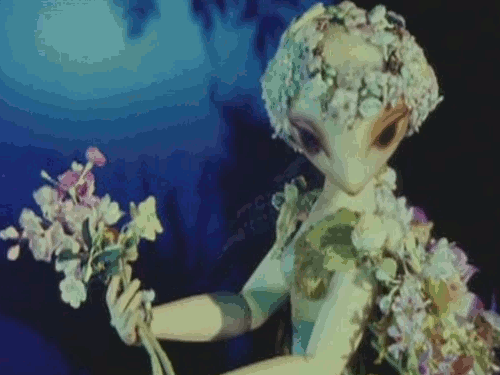
Jiří Trnka: Sen noci svatojánské (1959) | A Midsummer Night’s Dream
I will show this to the next person who tells me that the conductor is not so important because he just “waves his hands in front of the orchestra”.
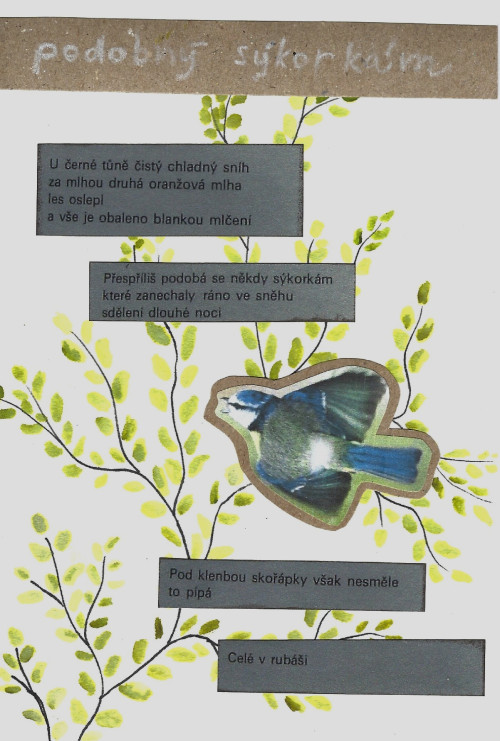
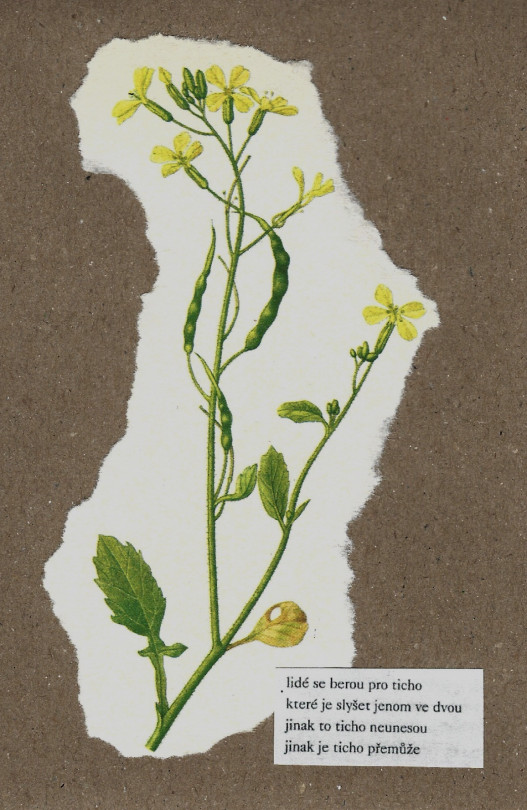
Jan Skácel: Podobný sýkorkám; čtyřverší XVIII

Virginia Woolf: To the Lighthouse (1927)
"It partook, she felt, carefully helping Mr Bankes to a specially tender piece, of eternity."
Lili Boulanger: Pie Jesu
played by Charles University Orchestra, sung by A. Mišoňová
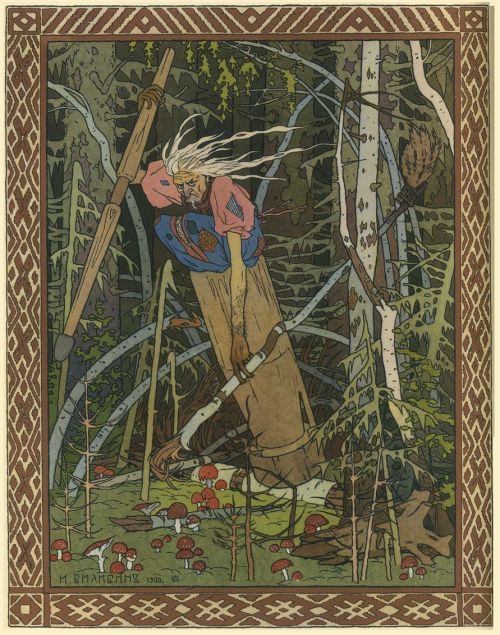
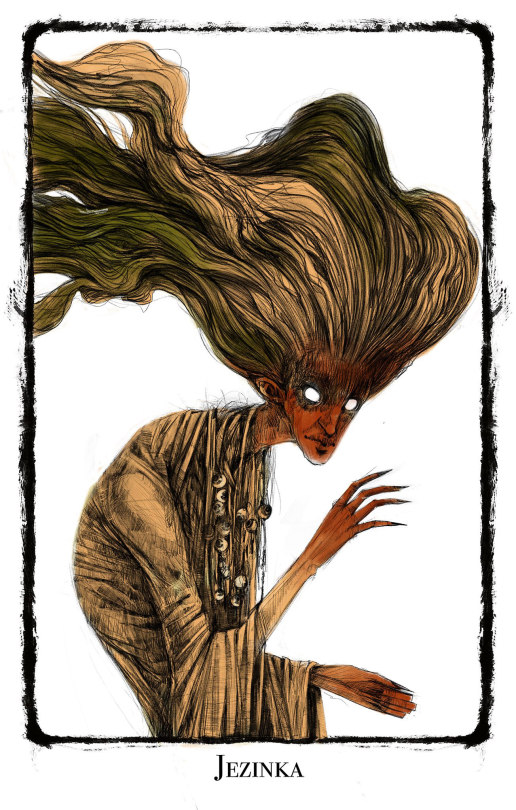
Interesting etymologies: Part 1
Two creatures used in the Czech folkolre: Baba Jaga (left) and Jezinka (right)
Although it is not obvious at first glance, these two words are etymologically related. Both originate from the Old Slavic jędza < Proto-Slavic *ędza, *ęga meaning ‘disease’.
The latter name, jezinka, is derived by a suffix from the Old Czech jězě. The connection with jaga is obscured by the fact it underwent the third Slavic palatalization process in which velar consonants [k], [g], [x] became [ts], [(d)z], [s/ ʃ ] after front vowels. Thus, jězě has a [z] where jaga has a [g].
(Source: Jiří Rejzek – Český etymologický slovník)
nahým a bosým posléze a oblečeným v cárech zlosti ve chvíli čiré beztesknosti zasteskne se nám po něze
then, dressed only in our anger naked, barefoot, penniless in moments of pure longinglessness we will long for something tender
Jan Skácel in Naděje s bukovými křídly (1983)

Hildegard von Bingen: O Ignee Spiritus
Hildegard von Bingen (ca. 1098–1179) was a Benedictine abbess, writer, composer, philosopher and scientist. Her spirituality was based on the idea of umbra viventis lucis (the reflection of the living Light).
This piece also contains some beautiful light imagery, for example in the line et eius lucerna est desiderium (and desire is its [=the soul’s] lamp), in which the first syllable of the word lucerna is sung on the highest note of the phrase, creating a shining effect in the melody as well.
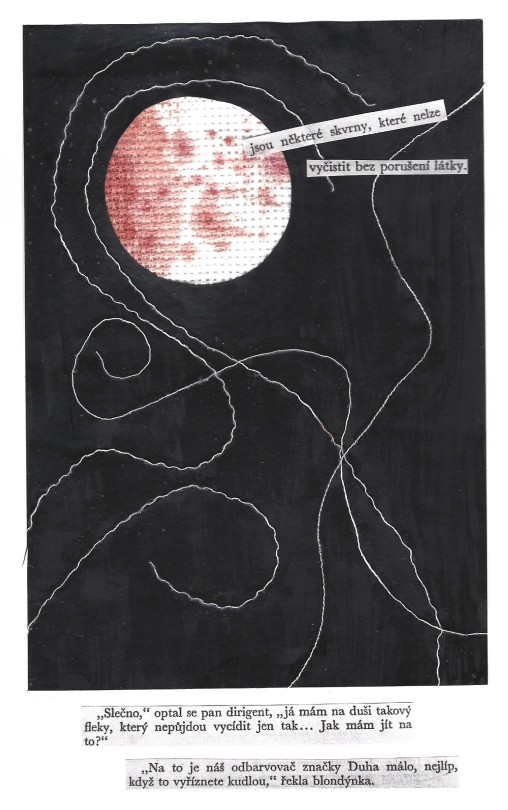
Bohumil Hrabal: Bambini di Praga 1947
“there are stains which cannot be cleaned without disrupting the structure of the fabric”
This quote demonstrates Hrabal’s art of aestheticization of banal phrases. The phrase is a a quote from an advertisement for a laundry detergent, but he gives it a completely different context and revives latent meanings in it, thus allowing it to come alive.
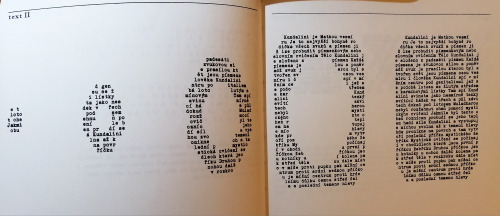
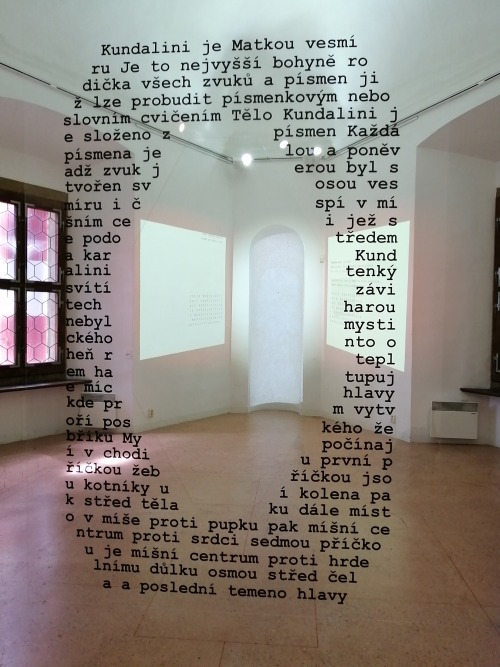
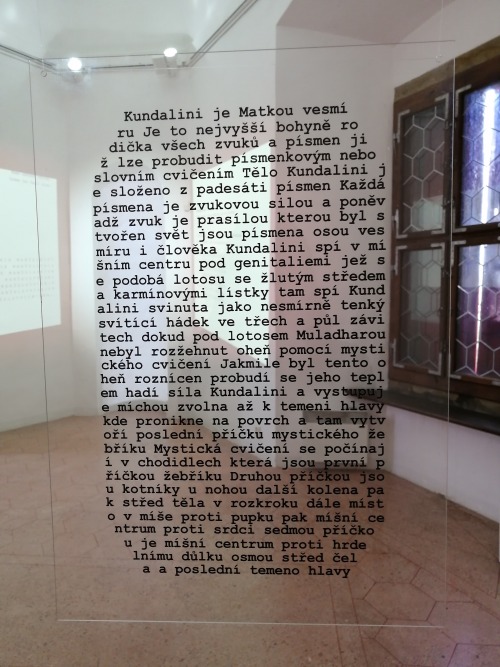
Josef Hiršal & Bohumila Grögerová: JOB-BOJ (1968) Setiny: exhibition of Bohumila Grögerová’s poetry at Hvězda, Prague (17. 6. – 7. 11. 2021)
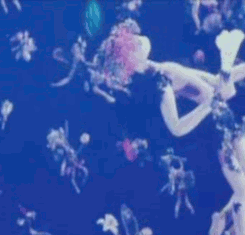
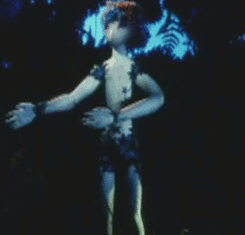
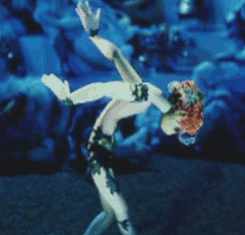

Jiří Trnka: Sen noci svatojánské (1959) | A Midsummer Night's Dream
Intro
To be very honest, the main reason I created this blog is to be able to communicate with my boyfriend (who has no social media other than tumblr) in another way than via email.
But I also want to take this as an opportunity to create an online storage of my favourite art, music, literature and other such things (as well as my own art) - to have them in one place for myself, and for others who may be interested.
I used to have a tumblr as a teenager and I did not think I would ever return to this platform, but I am feeling quite excited and nostalgic about it. I look forward to this experience.



